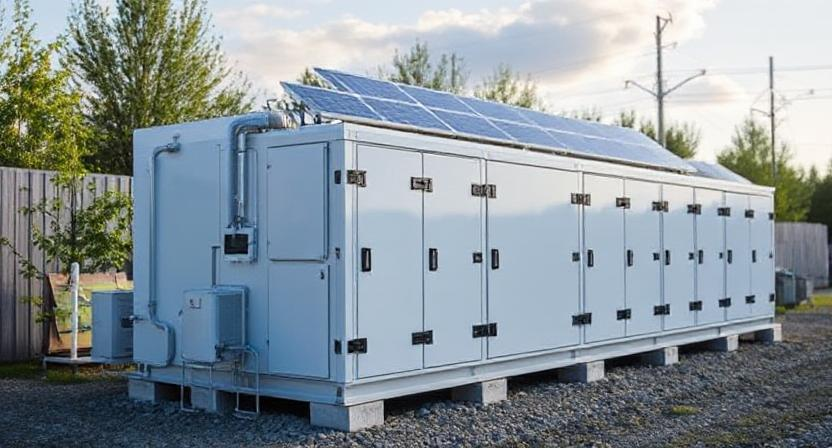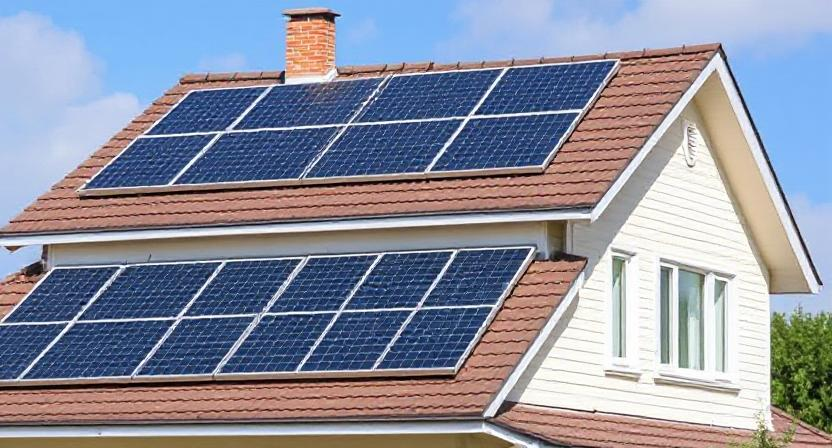To maximize the efficiency of your home’s solar system, ensuring optimal placement and regular maintenance are key factors. But have you ever considered how smart energy consumption practices and efficient storage solutions could further enhance your system’s performance? By implementing these strategies, you can not only increase energy savings but also contribute to a more sustainable and eco-friendly lifestyle. So, are you ready to explore these advanced techniques that could take your solar system to the next level?
Key Takeaways
- Optimal panel placement and orientation maximize sunlight capture.
- Utilize efficient energy storage solutions for excess power.
- Regular maintenance and cleaning ensure peak system performance.
- Implement smart energy consumption practices for efficiency.
- Monitor system performance to identify and address issues promptly.
Solar Panel Placement Optimization
To maximize the efficiency of your home solar system, strategic placement of solar panels is crucial.
When deciding where to install your panels, consider factors like the amount of sunlight your roof receives throughout the day and the presence of any shading from nearby trees or structures.
Ideally, your panels should face south to capture the most sunlight. If south-facing placement isn’t possible, east or west-facing panels can still generate significant energy.
Additionally, the angle of your roof plays a role in optimizing solar panel performance. For most locations, a tilt angle equal to the latitude of your home is a good starting point.
However, adjusting the tilt slightly based on your specific location and energy needs can further enhance efficiency.
Regularly cleaning your solar panels to remove dust and debris will also help maximize their effectiveness.
Efficient Energy Storage Solutions

Efficient energy storage solutions are essential for maximizing the benefits of your home solar system.
By storing excess energy generated during the day, you can ensure a stable and reliable power supply even when the sun isn’t shining.
One popular option is to invest in a solar battery system. These batteries store energy for later use, allowing you to power your home during peak evening hours or in case of a power outage.
Another efficient solution is the use of smart energy management systems. These systems intelligently distribute energy from your solar panels, battery storage, and the grid to optimize efficiency and cost savings.
By combining these storage solutions with your solar panels, you can reduce your reliance on the grid and take full advantage of your renewable energy source.
Regular Maintenance and Cleaning
For your home solar system to continue operating at its peak efficiency, regular maintenance and cleaning are key factors to consider.
By ensuring that your solar panels are free from debris, dust, and dirt, you can maximize their energy production.
Regularly inspecting the panels for any damage or shading issues caused by nearby trees or structures is crucial. Cleaning the panels with a soft brush, soap, and water helps maintain their performance.
In addition to cleaning the panels, it’s important to check the system’s connections and wiring for any signs of wear or damage. Loose connections can lead to energy loss and inefficiencies.
Monitoring the system’s performance through the inverter or a monitoring app can help you identify any issues promptly.
Setting up a regular maintenance schedule, such as cleaning the panels every few months and conducting a yearly inspection by a professional, can help prolong the lifespan of your solar system and ensure it continues to generate clean energy efficiently.
Smart Energy Consumption Practices
Consider adopting smart energy consumption practices to complement the efficiency of your home solar system.
By being mindful of how you use energy in your household, you can further optimize the benefits of your solar panels. Here are some practical tips to help you make the most of your solar system:
| Smart Energy Consumption Practices | Benefits |
|---|---|
| Utilize energy-efficient appliances | Reduces overall energy consumption |
| Implement smart thermostats | Regulates heating and cooling efficiently |
| Schedule high-energy tasks during peak sun hours | Directly use solar energy for demanding activities |
Ensuring that your home operates efficiently in tandem with your solar system can lead to significant cost savings and a reduced carbon footprint.
Make it a habit to monitor your energy usage and adjust your consumption patterns accordingly. By integrating these practices into your daily routine, you can maximize the efficiency and effectiveness of your home’s solar energy system.
Monitoring and Performance Tracking
To effectively monitor and track the performance of your home solar system, you need reliable tools and methods.
Installing a solar monitoring system allows you to keep a close eye on how much energy your system is producing and how efficiently it’s operating.
These tools provide real-time data on energy production, consumption patterns, and potential issues, helping you optimize performance and catch any problems early on.
Regularly checking your system’s performance metrics is crucial for ensuring it operates at its best. By monitoring the data, you can adjust your energy usage habits or identify any maintenance needs promptly.
Some monitoring systems even offer alerts for unusual activity or drops in performance, allowing you to address issues promptly and maximize your energy savings.
In addition to monitoring tools, performance tracking involves keeping a record of your system’s energy production over time.
By analyzing trends and patterns, you can make informed decisions on adjustments or upgrades to enhance your solar system’s efficiency and overall performance.
Monitoring and tracking go hand in hand in maximizing the benefits of your home solar system.
Frequently Asked Questions
Can Solar Panels Generate Electricity During Cloudy Days?
Yes, solar panels can generate electricity during cloudy days. Although their efficiency may decrease in overcast conditions, they can still produce power.
Consider installing a battery storage system to store excess energy for use when sunlight is limited.
What Is the Average Lifespan of Energy Storage Batteries?
On average, energy storage batteries last about 5 to 15 years, depending on usage and maintenance.
It’s crucial to monitor performance and schedule regular check-ups to ensure optimal lifespan and efficiency.
How Often Should I Clean My Solar Panels?
You should clean your solar panels at least twice a year to maintain optimal efficiency. Dust, dirt, and debris can decrease performance.
Use a soft brush, mild soap, and water. Regular cleaning ensures maximum energy production from your solar system.
Are There Specific Appliances to Avoid for Better Energy Consumption?
To increase efficiency, avoid using energy-intensive appliances like space heaters or electric water heaters during peak solar production times. Opt for energy-efficient appliances instead. These adjustments can help maximize your solar system’s effectiveness and reduce overall energy costs.
Can I Track My Solar System Performance Remotely?
Yes, you can track your solar system performance remotely. Use monitoring tools provided by your installer or invest in a third-party monitoring system. Stay informed about your system’s output and ensure it’s functioning optimally.
Conclusion
In conclusion, by following these tips and tricks, you can ensure that your home’s solar system operates at its maximum efficiency. From optimizing panel placement and implementing energy storage solutions to regular maintenance and smart energy consumption practices, you can make the most out of your solar investment. Keep track of performance and make adjustments as needed to continue reaping the benefits of sustainable energy.


